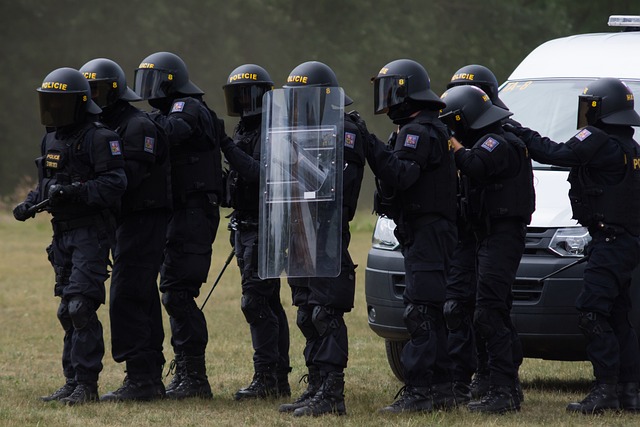Environmental crime trials are crucial for combating ecological degradation, facing challenges like pollution, habitat destruction, and illegal logging. Plea bargaining significantly influences sentencing, with defendants often negotiating deals to reduce penalties. This process raises debates about environmental justice, as lighter sentences may result for complex white-collar crimes compared to more severe offenses. Disparities in sentencing across jurisdictions require attention to ensure consistency and mitigate the Plea Bargaining Impact on Sentencing Severity. To achieve true justice, legal strategies must be reevaluated, promoting transparent dialogue, innovative dispute resolution methods, and community engagement for deterrence and sustainable practices.
Environmental Crime Trials: Unraveling the Legal Landscape of Ecocriminal Justice. This article explores the intricate world of environmental law, focusing on trials and their implications. We delve into ‘Understanding Environmental Crime Trials’ from a legal standpoint, scrutinize the impact of plea bargaining on sentencing, and analyze severity disparities. Furthermore, it discusses strategies to bolster accountability in environmental crimes, emphasizing the need for justice in a rapidly changing climate. Uncovering these aspects, we aim to shed light on the evolving role of the judiciary in combating ecocriminality.
- Understanding Environmental Crime Trials: A Legal Perspective
- The Role of Plea Bargaining in Environmental Cases
- Analyzing the Impact on Sentencing: Severity and Disparities
- Strategies to Enhance Accountability and Justice in Environmental Crimes
Understanding Environmental Crime Trials: A Legal Perspective

Environmental crime trials play a pivotal role in addressing the growing concern for ecological preservation and justice. These legal proceedings are designed to hold individuals and businesses accountable for actions that cause environmental harm, such as pollution, habitat destruction, and illegal logging. From the outset, understanding these trials requires recognizing their unique challenges and complexities, especially when compared to conventional criminal cases. One key distinction lies in the fact that environmental crimes often span multiple jurisdictions and involve intricate scientific evidence, making them more demanding for investigators and prosecutors.
Moreover, plea bargaining has emerged as a significant aspect of these trials, with implications on sentencing severity. In many cases, companies and individuals accused of environmental violations may negotiate plea deals to mitigate potential consequences. However, the impact of such agreements on achieving extraordinary results in environmental justice remains a subject of legal debate. Effective enforcement strategies throughout all stages of the investigative and enforcement process are crucial in ensuring that these trials serve as powerful deterrents and contribute to the preservation of our planet’s precious resources for future generations.
The Role of Plea Bargaining in Environmental Cases

In environmental crime trials, plea bargaining plays a significant role in shaping the outcome of cases. This strategy, where defendants agree to plead guilty in exchange for reduced charges or sentencing, is particularly prevalent in high-stakes cases where corporations and individuals face severe legal repercussions. For his clients, a well-crafted plea bargain can mitigate the impact on their business operations and financial stability. The process allows for a more controlled narrative, where the defendant accepts responsibility while negotiating a favorable outcome. This approach often proves crucial in complex environmental cases, where evidence and legal interpretations can be intricate.
The effect of plea bargaining on sentencing severity is noteworthy. Judges typically show leniency to defendants who cooperate and plead guilty, reflecting the understanding that such agreements facilitate more efficient justice administration. This dynamic is especially relevant in jury trials, where a guilty plea can bypass the time-consuming process of a trial and its associated costs. As a result, plea bargaining offers a strategic avenue for both prosecutors and defendants to navigate the complexities of environmental law while managing potential consequences.
Analyzing the Impact on Sentencing: Severity and Disparities

In environmental crime trials, the analysis of sentencing plays a pivotal role in understanding the impact on both deterrence and justice. One significant factor that influences sentencing severity is plea bargaining. This process, where defendants plead guilty in exchange for reduced charges or sentences, can lead to disparities in outcomes. While it offers a more efficient path through the legal system, particularly for less complex cases like white collar and economic crimes, it may also result in lighter punishments for offenses that carry substantial environmental consequences.
The severity of sentencing is not uniform across the country, with variations seen in how different jurisdictions handle environmental crimes. This can be attributed to factors such as local priorities, available resources, and political will. For instance, cases involving large corporations or high-profile incidents might receive more stringent penalties, while those affecting smaller communities or less visible ecosystems may lead to more lenient outcomes. Understanding these disparities is crucial for ensuring consistency in justice and addressing the plea bargaining impact on sentencing, ultimately aiming to uphold the integrity of environmental protection efforts.
Strategies to Enhance Accountability and Justice in Environmental Crimes

Ensuring accountability and justice in environmental crimes is a complex task, but several strategies can help strengthen the legal system. One approach that has gained attention is reevaluating plea bargaining practices. Traditional plea agreements might not adequately address the severity of environmental damage, leading to lenient sentences. By fostering open dialogue and promoting more transparent terms, prosecutors can negotiate pleas that reflect the true impact of the crime. This strategy ensures that perpetrators are held responsible for their actions and face consequences proportional to the harm caused.
Additionally, exploring alternative dispute resolution methods and emphasizing community involvement in jury trials across the country can bring about positive changes. Engaging affected communities in the legal process allows for a more nuanced understanding of the environmental impact and promotes restorative justice. This collective effort can lead to innovative solutions and ensure that environmental crimes are not only punished but also serve as deterrents, encouraging businesses and individuals to prioritize sustainable practices in the future.
Environmental crime trials play a pivotal role in upholding environmental justice, but there are challenges, especially regarding plea bargaining and sentencing disparities. As these cases often involve complex scientific evidence and significant public interest, the legal system must adapt to ensure appropriate accountability. By examining the impact of plea bargaining on sentencing severity, we can identify strategies to strengthen environmental law enforcement, promote consistency, and achieve a more just outcome for nature and communities affected by these crimes.






